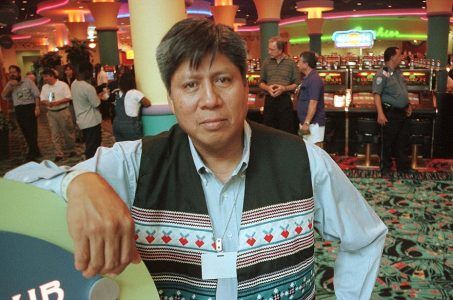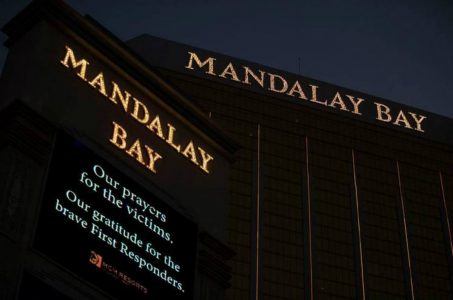Seneca Nation and New York State Begin High-Stakes Arbitration Process to Resolve Rev-Share Spat
Posted on: December 13, 2018, 03:29h.
Last updated on: December 13, 2018, 03:29h.
Long-awaited arbitration hearings between the Seneca Nation and the State of New York got underway on Tuesday in an effort to end a 20-month standoff over revenue-share payments. The cash-strapped host cities of the Seneca’s three casinos — Salamanca, Buffalo, Niagara Falls – which rely on the payments to balance their budgets will be hoping for a resolution before Christmas.

At stake is the $100-odd million the Senecas used to turn over to the state as part of a 2002 compact agreement, part of which was redistributed to the host cities. At issue is the wording of that 2002 compact which the tribe believes precludes it from making payments beyond 2016.
The 2002 agreement stipulated the compact would roll over after 14 years for another seven, provided there was no objection from the state, which there wasn’t. But the tribe argues there was no specific stipulation that the payments would continue during the second phase of the compact.
‘No Basis in Law or Logic’
In March 2017, New York declared the Seneca Nation to be violation of its compact, asserting “the nation’s contention that it can unilaterally end paying the state contribution while continuing to enjoy the benefits of the compact has no basis in the compact, law or logic.”
The Senecas have become infuriated by gambling expansion sanctioned by the legislature over the years and have also accused the state of breaching of exclusivity clauses in the compact.
A spokesperson for the Seneca Nation said the legally binding arbitration could wrap up on Thursday, although there is no timetable for the panel’s decision.
Financial Relief
Of the three host cites, the City of Niagara Falls was particularly dependent on the payments and has been hard hit. The community of around 50,000 struggles to compete on an economic level with its more popular Canadian namesake and unemployment and crime rates are high.
The city’s scaled-down budget was $91.4 million this year, but it has only about $80 million in recurring revenues. In September, New York Governor Andrew Cuomo sent $12.3 million in financial relief to the city, roughly the amount it would have expected to receive from the tribe.
The Senecas have said they are willing to negotiate separate financial deals with host cities, but none have pursued that option because, for now, they are backing the state.
State Assemblyman and former judge Angelo Morinello (R-Niagara) told The Niagara Reporter that his city must have faith in the arbitration process.
“I trust the process,” he said. “I trust the process and absolutely hope the outcome is based on the law governing the issue. It will be a fair process and both sides will have to be prepared for whatever the outcome is.”
Related News Articles
Biggest Gaming Industry Legal Conflicts, Battles, and Outright Wars of 2018
Most Popular
FTC: Casino Resort Fees Must Be Included in Upfront Hotel Rates
Genovese Capo Sentenced for Illegal Gambling on Long Island
NBA Referees Expose Sports Betting Abuse Following Steve Kerr Meltdown
UPDATE: Former Resorts World & MGM Grand Prez Loses Gaming License
Most Commented
-
UPDATE: Whiskey Pete’s Casino Near Las Vegas Closes
— December 20, 2024 — 30 Comments -
Caesars Virginia in Danville Now Accepting Hotel Room Reservations
— November 27, 2024 — 9 Comments -
UPDATE: Former Resorts World & MGM Grand Prez Loses Gaming License
— December 19, 2024 — 8 Comments -
FTC: Casino Resort Fees Must Be Included in Upfront Hotel Rates
— December 17, 2024 — 7 Comments
















No comments yet